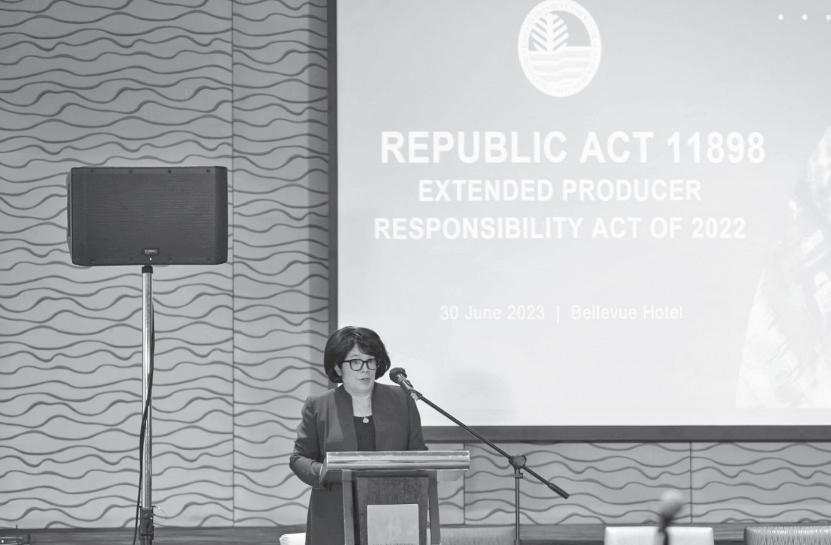
1 minute read
SC orders PAO chief to clarify criticism against new lawyers’ code of conduct
By Joel R. San Juan @jrsanjuan1573
THE Supreme Court (SC) has denied the plea of Public Attorney’s Office (PAO) chief Persida Rueda Acosta to delete Section 22, Canon III of the Code of Professional Responsibility and Accountability (CPRA) that allows PAO lawyers to represent opposing parties in court cases.
PAO’s request to delete S ection 22, Canon III of the CPRA was docketed as an administrative matter and was decided by the Court en banc during its regular session last July 11, 2023.
During their deliberations, the magistrates also decided to compel Acosta to show cause why she should not be cited in indirect contempt for her unabated public tirades against the said provision. The Court noted Acosta’s social media posts and newspaper publications branding the adoption of the CPRA as unconstitutional, and an undue interference and intrusion by the SC into PAO’s operations. The SC said Acosta’s tirades tend to directly or indirectly “impede, obstruct, or degrade the administration of justice” and can be considered “as a threat to the independence of the judiciary.”
In defending the assailed provision of the CPRA, the SC reminded the PAO chief of its primordial mandate which is to “[extend] free legal assistance to indigent persons in criminal, civil, labor, administrative and other quasi-judicial cases.”
To turn away indigent litigants and bar them from availing of the services of all PAO lawyers nationwide due to alleged conflict of interest would be to contravene PAO’s principal duty and leave hundreds of poor litigants unassisted by legal counsel they cannot otherwise afford,” it added.
The SC maintained that CPRA was promulgated in the exercise of its exclusive rule-making power under the Constitution.
Likewise, the High Tribunal said the CPRA was adopted as part of its authority to supervise the practice of law and to provide free legal assistance to the underprivileged.
The CPRA took effect on May 30, 2023, 15 days after its publication. In her letter to Chief Justice Alexander Gesmundo, Acosta sought the indefinite suspension of the implementation of CPRA pending review by the members of the Court.
Acosta told Chief Justice Gesmundo that PAO’s clients would not agree that their opponents be represented by lawyers from the same office.







